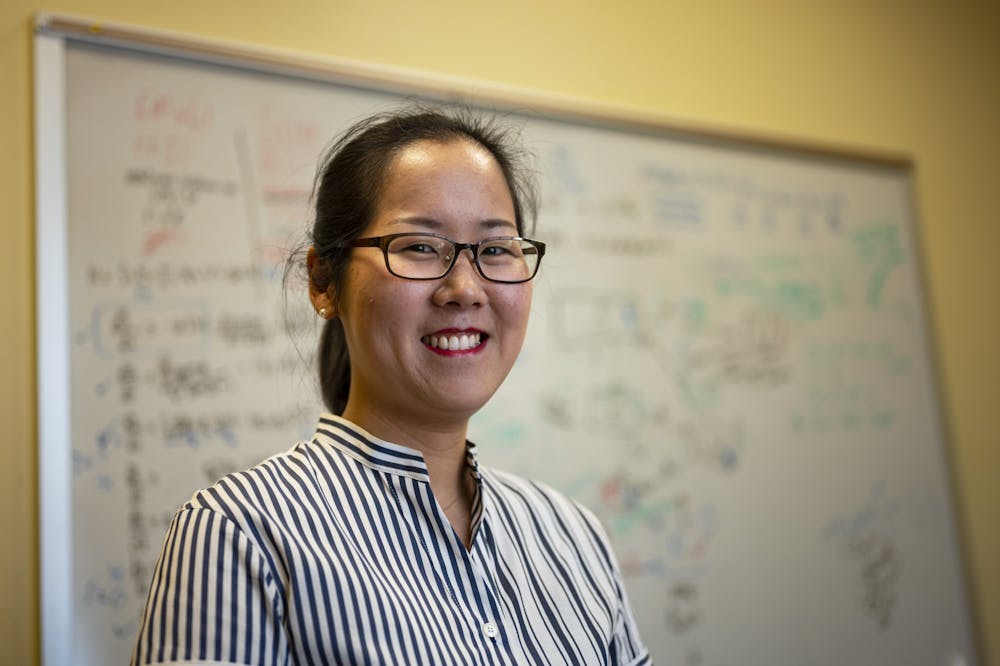Elon University professor of mathematics Hwayeon Ryu was awarded a $300,000 National Science Foundation grant in April to fund her COVID-19 research for the next three academic school years.
Ryu said the research will focus on developing a mathematical model of how the human immune system responds to the COVID-19 virus in order to best pinpoint treatment targets or strategies in immune responses.
Throughout the project, Ryu is allowed to support up to three Elon students as research collaborators each year. Ryu said these positions will come with stipends and she will be looking for students who have completed basic mathematics courses, such as calculus, and who have an interest in biology.
“I can encourage students who have diverse backgrounds because this project is pretty interdisciplinary,” Ryu said. “So not only having a good skill set in my mind, but also having a genuine interest in biology or how mathematics can help some of the complex biological systems or problems … that’s one of the things that I’m considering when it comes to recruiting students.”
Up until recently, Ryu said the most prominent COVID-19 research has revolved around how to stop the virus. Now with mass production and distribution, the research will shift to utilizing various treatments for specific individuals.
“There are still new variants going on and then many versions of the new cases,” Ryu said. “So I think the problem that we are looking at is how we can use the power of mathematics to … better understand how our immune system is responding to this virus.”
The initial problem her research intends to tackle is developing a mathematical model that will be in agreement with clinical and experimental data of COVID-19 interacting with the immune system. Once their prediction model matches the data they receive, the project will shift again toward isolating treatment-related questions and answers.
According to Ryu, the most complex aspect of COVID-19 is its ability to affect each person in vastly different ways — as it can be incredibly severe in some patients and almost non-existent in others.
Kamila Larripa, professor of mathematics at Humboldt State University, will work as an external collaborator on this project with Ryu. According to Larripa, she and Ryu previously studied immune cell polarization together and will utilize that field of work in this project to understand the role of immunity in COVID-19.
Larripa also said that their project model might help to answer some open questions such as why some patients have a “cytokine storm” — or multiple, exaggerated immune responses that can have negative consequences — in response to the virus, what interventions might improve patients’ outcomes and the existence of immunological dysfunction as seen in long-term COVID-19 cases.
“Dr. Ryu is an emerging expert in mathematical modeling of immunity and it is my great pleasure to work with her on such an exciting project,” Larripa wrote in an email to Elon News Network.
According to Ryu, Elon will be hosting a one-day regional STEM conference in spring 2023 as a part of receiving this grant. Student researchers will have access to some of the grant’s funds for traveling and attending other regional and national mathematics conferences, where they will be able to interact with and present to existing undergraduate researchers from around the world.
“Our work will, I hope, be helpful for those who are actually dealing with the treatments,” Ryu said. “You know, giving them some better understanding, like what is the best strategy or best timing of dosing … so that they can actually get the best results.”


